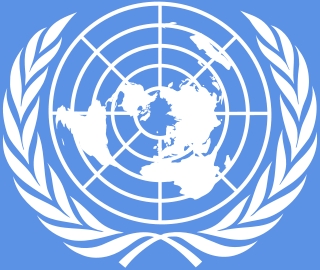
WE NEED A RADICAL SHIFT IN THINKING: INCLUSION IS ESSENTIAL TO OUR SURVIVAL

Our world is at a decisive moment. After decades of relative stability, we are navigating uncertain and even unstable times. Global cooperation is in decline; economic growth rates are down. Some countries and regions are responding by looking inwards, emphasizing division and exclusion; but such short-term thinking will only deepen the global challenges we face.
Many of these challenges are rooted in the economic and social frameworks that we have built over centuries and even millennia, based on exclusion and discrimination. From colonialism to the climate crisis, we are living the consequences of exclusion, intolerance, and a lack of respect for difference – and it’s killing us.
Inequality is high and rising. By 2030, the richest one percent of people could control two-thirds of the planet’s wealth. The rights of minorities and marginalized people, particularly refugees and migrants, are routinely disregarded. Violence is used to enforce patriarchy and millions of women and girls face insecurity and violations of their human rights every day. Military spending is rising even as societies fail to provide basic services for their people.
Climate change is wreaking havoc on some of the most vulnerable countries and regions, while others continue to increase greenhouse gas emissions. Deforestation, overfishing and pollution are causing unprecedented damage. Short-term profits for a few are prioritized over the rights and interests of all.
We have lost sight of our shared humanity and interdependence – on each other, and on the planet that gives us life. These principles are shared across all major faiths and traditions, but we have lost touch with them.
Four years ago, all countries came together and agreed unanimously on the 2030 Agenda for Sustainable Development, our transformational roadmap for people, planet, prosperity, peace and partnerships. The Agenda is centred on inclusion, pluralism and the rights of all. It is rooted in evidence that greater diversity and inclusion, particularly of women, is correlated with sustainable economic growth and better prospects for peace and stability. It calls for a fundamental reorganization of our economic, political and social systems so that we can reap the benefits of inclusion, through stronger and more resilient communities and societies based on human rights and human dignity for all.
Such ambitious efforts can work, when they are backed by political will. Thanks to multilateral action, today life expectancy is higher, extreme poverty is declining, literacy is at historically high levels and we are mending the hole in the ozone layer. The Millennium Development Goals, precursors to the 2030 Agenda, helped to lift more than a billion people out of extreme poverty, to make inroads against hunger, and to get more girls into school than ever before. But multilateralism may be a victim of its own success. We have started taking it for granted, rather than treating it as an evolving challenge to be nurtured, promoted and reinvigorated. Without multilateral support for inclusive solutions, we are doomed to lose-lose economics, widening inequality and climate catastrophe.
The solutions we need to meet the ambitions of the 2030 Agenda are centred on dignity, well-being and opportunity for all, without discrimination. While these qualities are not measured under Gross Domestic Product, they are critical measures of successful governance.
We all have a part to play. Inclusion starts everywhere people connect: businesses, schools, medical clinics, the media and civil society.
We need a radical shift towards solutions based on mutual gains rather than zero-sum thinking; towards security based on resilient, inclusive and more equal societies rather than weapons and stronger borders, and towards economic systems that incentivize the sustainability of our planet over profits made from exploitation and destruction.
Inclusion can no longer be portrayed as an add-on or optional extra: It is an urgent political and economic necessity for our own survival and that of our planet.
This commentary is abridged from remarks delivered on June 11 in Lisbon, Portugal, at the 2019 Pluralism Lecture. The Lecture is hosted annually by the Global Centre for Pluralism. Watch Ms. Mohammed’s full address.






